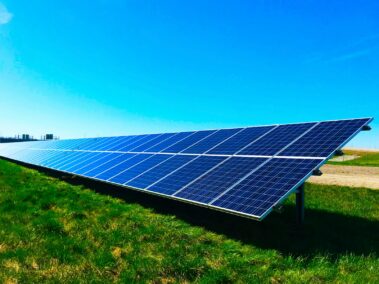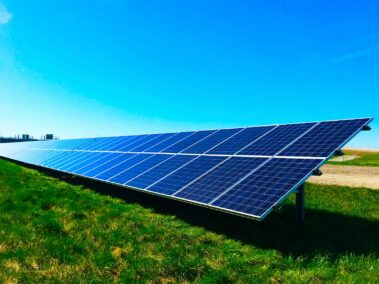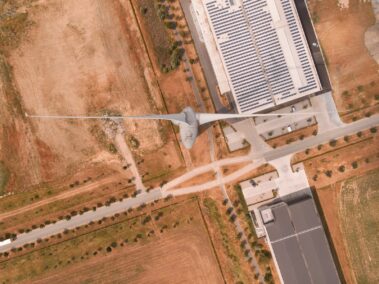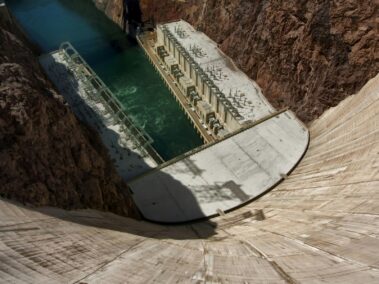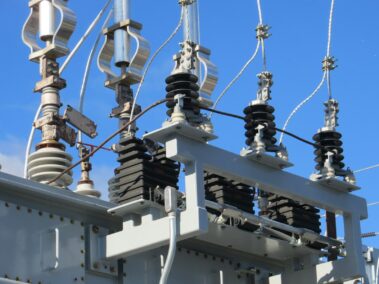Maximizing Efficiency and Sustainability with Hybrid Renewable Energy
Introduction to Hybrid Renewable Energy Systems
Hybrid renewable energy systems have emerged as a solution to the intermittency and variability of individual renewable energy sources, offering a reliable and sustainable approach to power generation. In regions like Saudi Arabia and the UAE, where the adoption of renewable energy is a key component of sustainability efforts, hybrid systems play a crucial role in diversifying the energy mix and reducing dependence on fossil fuels. By combining multiple renewable sources such as solar, wind, and hydroelectric power, these systems can optimize energy production and storage, paving the way for a cleaner and more resilient energy infrastructure.
Technological integration is at the heart of enhancing hybrid renewable energy systems. Advancements in energy storage, smart grid technologies, and predictive analytics enable the seamless integration of diverse energy sources, ensuring efficient operation and maximum utilization of renewable resources. In Dubai, where technological innovation drives urban development, the integration of hybrid systems into the city’s energy infrastructure aligns with its vision of becoming a global leader in sustainable technology and smart city initiatives.
For business executives, mid-level managers, and entrepreneurs, understanding the potential of hybrid renewable energy systems is essential for driving sustainable business practices and achieving long-term success. By investing in technological integration and adopting hybrid energy solutions, companies can reduce energy costs, enhance resilience against grid disruptions, and demonstrate a commitment to environmental stewardship. Moreover, the integration of hybrid systems presents opportunities for innovation and competitive advantage in the rapidly evolving energy market.
The Benefits of Technological Integration in Hybrid Energy Systems
One of the primary benefits of technological integration in hybrid renewable energy systems is improved energy efficiency and reliability. Advanced energy management systems can intelligently balance the output from different renewable sources based on factors such as weather conditions, energy demand, and storage capacity. This dynamic optimization ensures a steady and consistent power supply, even during periods of low renewable resource availability. In Riyadh, where energy security is a priority, the reliability of hybrid systems strengthens the resilience of the energy grid and reduces the risk of disruptions.
Furthermore, technological integration enhances the economic viability of hybrid renewable energy systems. By leveraging predictive analytics and machine learning algorithms, energy providers can forecast energy production more accurately, optimize system performance, and minimize operational costs. This cost-effectiveness is particularly beneficial in regions like the UAE, where reducing the cost of renewable energy production is essential for widespread adoption. The integration of hybrid systems can lower electricity prices for consumers, drive economic growth, and create new opportunities for investment and innovation.
From a sustainability standpoint, technological integration contributes to reducing greenhouse gas emissions and mitigating climate change. By maximizing the use of renewable energy sources and minimizing reliance on fossil fuels, hybrid systems help countries meet their carbon reduction targets and transition to a low-carbon economy. In Saudi Arabia, where diversifying the energy mix is a strategic priority, technological integration accelerates the deployment of renewable energy infrastructure and supports the country’s ambitious sustainability goals.
Executive Coaching and Change Management in Adopting Hybrid Energy Solutions
The successful adoption of hybrid renewable energy solutions requires effective executive coaching and change management strategies. Business leaders must navigate the complexities of integrating new technologies into existing energy infrastructure while ensuring alignment with organizational goals and objectives. Executive coaching can provide leaders with the skills and knowledge needed to drive innovation, manage change, and inspire teams to embrace hybrid energy solutions.
Change management plays a crucial role in facilitating the transition towards hybrid energy adoption. In regions like the UAE, where rapid urbanization and population growth drive energy demand, effective change management ensures that stakeholders are engaged, and organizational processes are aligned with sustainability objectives. By fostering a culture of innovation and collaboration, companies can overcome resistance to change and leverage hybrid energy solutions to achieve business success.
Effective communication is also vital in the adoption of hybrid energy solutions. Business leaders must communicate the benefits and importance of technological integration to employees, investors, and the wider community. Transparent communication builds trust and buy-in, fostering a supportive environment for innovation and sustainable growth. By leveraging executive coaching and change management principles, companies can navigate the complexities of hybrid energy adoption and position themselves as leaders in the transition to a cleaner, more sustainable energy future.
Leveraging AI and Blockchain in Hybrid Energy Management
Artificial Intelligence (AI) and blockchain technologies offer opportunities to optimize hybrid energy management and enhance the efficiency and reliability of renewable energy systems. AI algorithms can analyze vast amounts of data from renewable energy sources, energy storage systems, and grid infrastructure to optimize energy production and distribution. In Dubai and Riyadh, where investment in AI is on the rise, integrating AI into hybrid energy management can improve grid stability, reduce operational costs, and facilitate the transition to a more sustainable energy system.
Blockchain technology, with its secure and transparent nature, can revolutionize energy trading and billing in hybrid energy systems. By recording energy transactions on a decentralized ledger, blockchain ensures the integrity and traceability of energy transactions, fostering trust among stakeholders and reducing the risk of fraud. In the UAE, where blockchain initiatives are gaining traction, the application of this technology to hybrid energy management can enhance transparency, efficiency, and accountability, driving the adoption of renewable energy solutions.
For business leaders, the integration of AI and blockchain into hybrid energy management offers opportunities for innovation and competitive advantage. By leveraging these cutting-edge technologies, companies can enhance their operational efficiency, reduce costs, and improve their environmental performance. Embracing AI and blockchain aligns with global sustainability goals, positioning businesses as leaders in the transition to a cleaner, more sustainable energy future.
Conclusion: The Future of Hybrid Renewable Energy Systems
The integration of technological advancements into hybrid renewable energy systems represents a significant step towards achieving a sustainable and resilient energy future. For regions like Saudi Arabia and the UAE, where the adoption of renewable energy is a strategic imperative, technological integration offers opportunities to diversify the energy mix, enhance grid stability, and reduce carbon emissions. By investing in executive coaching, change management, and emerging technologies such as AI and blockchain, businesses can lead the way in embracing hybrid energy solutions and driving positive change towards a cleaner, more sustainable world.
As business executives, mid-level managers, and entrepreneurs, it is essential to recognize the transformative potential of hybrid renewable energy systems and take proactive steps to integrate them into energy strategies. By doing so, companies can not only reduce their environmental footprint but also capitalize on new opportunities for growth and innovation in the rapidly evolving energy market. Together, we can harness the power of technology to build a brighter, more sustainable future for generations to come.
#hybridenergy, #renewableenergy, #technologicalintegration, #sustainabletechnology, #executivecoaching, #changemanagement, #businesssuccess, #AI, #blockchain, #leadershipskills, #projectmanagement


